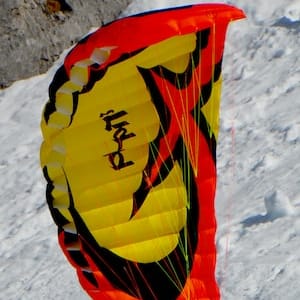snow out: Idiom Meaning and Origin
What does ‘snow out’ mean?
The idiom "snow out" means for an event or activity to be cancelled or postponed due to heavy snowfall or blizzard conditions.

Idiom Explorer
The idiom "turn of events" refers to an unexpected change or shift in a situation or sequence of events.
The idiom "take time out" means to pause or suspend activities, often to rest or relax, before continuing with them later.
The idiom "take out" means to remove something or someone from a particular place or situation.
The idiom "sweep out" means to remove or get rid of something completely, typically in a forceful or decisive manner.
The idiom "stormy weather" refers to a period of difficult and turbulent times or circumstances, often related to emotional or challenging situations.
The idiom "storm off" means to leave a place angrily or abruptly, typically in response to a disagreement or conflict.
The idiom "spin out" refers to losing control or becoming overwhelmed by a situation, often resulting in negative consequences.
The idiom "snow on the rooftop" refers to someone who is aging but still has a full head of white or gray hair, symbolizing wisdom and experience that comes with age.
The idiom "snow job" refers to someone trying to deceive or persuade others by using elaborate and persuasive tactics. It suggests that the person is trying to "snow" or "blind" others with their words, similar to how heavy snowfall can obscure visibility.
The idiom "snowed under" means to be overwhelmed or flooded with too much work or responsibilities.
Decoding Snowy Surprises
In addition to "snow out," there are two related idioms that are commonly used to describe similar situations caused by weather. These idioms are "rain off" and "rain stopped play."
"Rain off" is used to describe the cancellation or postponement of an outdoor event or activity due to rain. Just like "snow out," this idiom conveys the idea that the rain has made the event or activity impossible or impracticable to continue. Whether it's a sports game, a concert, or a picnic, when it's raining heavily, the organizers may decide to "rain off" the event for the safety and comfort of the participants.
"Rain stopped play" is a phrase commonly used in the context of cricket matches. In cricket, matches can be interrupted or paused due to rain. When this happens, the players and officials have to wait for the rain to stop or for the ground to dry before the game can resume. "Rain stopped play" is used to describe this situation, highlighting how rain can cause a temporary halt or suspension of the game.
The usage of these idioms reflects the impact of weather conditions on our daily lives and activities. Whether it's heavy snowfall, rain, or any other weather-related obstacle, these idioms capture the inconvenience and disruption caused by nature's forces.
When it comes to snow, the idiom "snow out" is especially relevant in areas that experience frequent and heavy snowfall. In these regions, snow can accumulate quickly and significantly, making it challenging to travel or carry out regular activities. To understand the implications of "snow out," it's important to delve into its origin and usage.
Snow is a natural phenomenon that occurs when water vapor in the atmosphere freezes into ice crystals and falls to the ground. This process is influenced by temperature, humidity, and other atmospheric conditions. When snowfall is particularly heavy, the accumulation of snow can create obstacles and challenges for transportation, communication, and daily routines. It can make roads and pathways dangerous or impassable and can lead to power outages and disruptions in services.
Areas that experience heavy snowfall often have systems in place to deal with these challenges. Snowplows are used to clear roads and highways, and airports have equipment to remove snow from runways. However, in certain cases, the amount of snowfall can be so substantial that it becomes difficult to keep up with the clearing efforts. This is when the idiom "snow out" comes into play.
When an area is "snowed out," it means that the snowfall has reached such a level that it is no longer practical or safe to navigate the area. This could result in the closure of schools, businesses, and transportation services. People are advised to stay indoors and avoid unnecessary travel. The heavy snowfall essentially renders the area inaccessible and disrupts the usual flow of life.
The comparison between "snow out" and the idioms "rain off" and "rain stopped play" can be drawn through their shared concept of weather-related disruption. Just as heavy snowfall can lead to a "snow out," heavy rain can result in events being "rained off" or cricket matches being "stopped play." In all these cases, the weather conditions have a significant impact on the ability to carry out planned activities.
The idiomatic expression "snow out" is primarily used to describe the disruption and hindrance caused by heavy snowfall in specific regions. It signifies the situation where an area becomes inaccessible or impractical to navigate due to the accumulation of snow. The idiom is rooted in the literal meaning of snow and being "out," highlighting how snow can obstruct transportation, communication, and daily activities.
Additionally, the idioms "rain off" and "rain stopped play" are related expressions used to describe weather-related disruptions. "Rain off" refers to the cancellation or postponement of an outdoor event due to rain, while "rain stopped play" specifically pertains to cricket matches being temporarily halted due to rain. These idioms, along with "snow out," capture the impact of weather conditions on our plans and activities.
Example usage
Examples of how the idiom "snow out" can be used in a sentence include:
- After a severe blizzard, the roads were completely snowed out, making travel impossible.
- We had planned a picnic, but the unexpected snowstorm snowed us out, forcing us to reschedule.
- The heavy snowfall caused the football game to be snowed out, disappointing many fans who had been looking forward to it.
More "Weather" idioms



